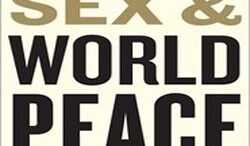Liberalism as a political ideology and a philosophical doctrine has championed individual autonomy, social and political equality, and democratic and inclusive political institutions. Consequently, liberalism is known for its commitment to tolerance and value pluralism. Yet liberalism has been critiqued for being insensitive to claims of culture. Worse yet, according to some critics the liberal tradition has provided the rationale for imperialism rooted in the liberal assumptions about reason and historical progress. Though these ironies are a clear source of embarrassment for today’s liberals, liberalism still displays an uneasy commitment to pluralism. Liberals today are more challenged than ever to look at the dynamics of diversity both at home and abroad. To stay viable as a political ideology, liberalism needs to show that it can remain true to its universal norms while being responsive to cultural complexities and differences—both within a pluralistic liberal democracy and in the globalized world. In this essay I claim that liberalism can indeed be both substantive and negotiable as it faces the increasingly vocal challenges of diversity. I will show that the task for liberalism in bridging the liberalism/illiberalism divide lies in locating a false conundrum within liberalism itself.
To read or purchase the full text of this article, click here.
Read a response by John R Wallach here.
More in this issue

Summer 2013 (27.2) • Review
Sex & World Peace by Valerie M. Hudson, Bonnie Ballif-Spanvill, Mary Caprioli, and Chad F. Emmett
This book clearly and forcefully lays out the links between women’s security and international and domestic security.
Summer 2013 (27.2) • Review
Briefly Noted
This section contains a round-up of recent notable books in the field of international affairs.
Summer 2013 (27.2) • Feature
Peace as a Transnational Theme
To consider war and peace purely in the context of international relations is insufficient, even anachronistic. What we need is less an international than a ...
